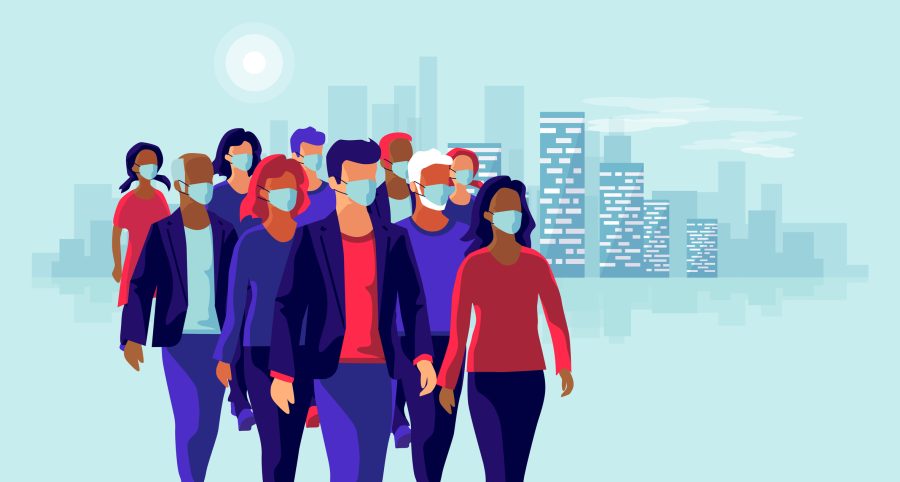IPPO Cities event report: tackling urban inequalities through pandemic recovery

In February 2022, IPPO Cities convened their second policy roundtable. This online event explored innovative work being undertaken in tackling inequalities as part of cities’ pandemic recovery strategies.
Jeremy Williams
Following on from IPPO Cities’ first event on the future of urban space, attendees heard from officials and practitioners from Philadelphia, Durham, Los Angeles, San Francisco, and Alexandria in the United States, Rotterdam in the Netherlands, and the London Borough of Waltham Forest in the United Kingdom. Those presenting discussed the equity-centred interventions they were attempting in their localities and shared their insights, strategies, and tactics with the roundtable.
Equitable and Community Budgeting
Proceedings began with Philadelphia’s Budget Director Marisa Waxman presenting the city’s equitable budgeting approach, one which benefited from their involvement in Bloomberg Philanthropies’ City Budgeting for Equity and Recovery program. The equitable budgeting process is one which seeks to change the ways budgets are set and expand who is involved to produce budgetary decisions that have measurable impacts in reducing racial and other disparities.
The roundtable discussed the importance of offering financial compensation for members of the community who were engaged in this process and noted other tactical work to encourage community involvement. This included targeted outreach like advertising at transit stops, building relationships with and training key community leaders, and ensuring panels were balanced to reflect the communities they served.
The roundtable also heard from Laura Biediger, Durham’s Equitable Community Engagement Strategist, who discussed the benefits of directly funding underrepresented groups to design and lead their own engagement processes. This saw community groups bidding for funding for such work, with the city providing technical support, training, and facilitating development opportunities. This approach allowed the on-the-ground knowledge and expertise of community groups to be harnessed, and engagement to be led by the community members themselves.
Social Entrepreneurship and Social Prescription
Work that tapped into existing community resources was also set out by presenters from Rotterdam and the London Borough of Waltham Forest. Rotterdam’s Rikx project, recently rewarded for its innovation by the Bloomberg Global Mayors Challenge, facilitates social entrepreneurship by providing an alternative funding mechanism for social projects. This sees private investment mobilised into local initiatives using a token system to monetise proven social outcomes, allowing impactful projects to receive private funding based on their impact. Wouter Vos of the Rebel Group discussed the project’s success, and briefed attendees on how its model and methodology could be scaled up and applied across other cities.
The roundtable also discussed social prescription. This process involves improving health and wellbeing through combatting issues like isolation, mental health, or debt by connecting residents to non-clinical community activities and resources as part of an early intervention strategy. Social prescription operates as a partnership between healthcare providers, local authorities and the voluntary sector. Sharon Hanooman, Public Health Strategist at the London Borough of Waltham Forest, discussed the process, outcomes, and its transformative potential, with the roundtable. Ongoing challenges identified for this and similar programs included reaching those who were most excluded and measuring impact in a holistic way.
Guaranteed Income
The pandemic recovery period has also provided a window of opportunity for guaranteed income experiments, with various schemes being undertaken at various levels across the United States. The roundtable heard from Los Angeles, whose Big Leap program is the US’s largest of its kind, as well as from San Francisco, where a dozen programs are in development or operation, and Alexandria, VA, where work is ongoing.
One key challenge for cities conducting such experiments proved to be securing the longevity of such schemes, particularly where there is agreement that such schemes are successful in promoting equitable outcomes. Jacob Dumez of San Francisco argued for practitioners and policymakers to move beyond debates over whether such schemes work, and instead focus on embedding guaranteed income schemes – as well as other proven initiatives such as tax credits, baby bonds and child savings accounts – into policy.
As both Abigail Marquez from Los Angeles, and Kate Garvey and Lisa Gilbert from Alexandria, Virginia, in the US, noted, storytelling also plays an important role in encouraging both take-up for those who would benefit from accessing such schemes, as well as embedding them more permanently in cities’ governance and budgeting architecture. Relevant to this discussion, IPPO’s forthcoming event on designing a basic income experiment will take place on 10th March at 3 pm GMT. More details and registration for the event can be found here.
Challenges for Cities in 2022
The challenges which cities face as they formulate and deploy recovery plans are multi-faceted, with different approaches and framings required to understand and respond to the complex, society-wide aftermath of the pandemic. The necessary economic recovery work to rebuild after Covid sits alongside the need to address broader questions around homelessness, mental health, isolation, and social capital among others, with significant work necessary to mitigate against the pandemic’s scarring impact. IPPO Cities will be addressing a number of these themes during the course of the year, including at our special Cities Policy Roundtable on systemic issues and building resilience on 24th March 2022, from 12:30 pm to 1:30 pm GMT. This discussion will feature city leaders from across the UK, and forms part of IPPO’s all-day event marking the second anniversary of the imposition of pandemic lockdowns. Sign up for the Cities roundtable here, and for the all-day Pandemic Two Years On event here.
IPPO Cities – part of the International Public Policy Observatory and supported by Bloomberg Philanthropies – brings together city officials, policy advisors and urban specialists to discuss innovative policy responses and recovery strategies relating to the long-term socioeconomic impacts of COVID-19. To receive further information about our work and details of upcoming roundtable events, please sign up to our mailing list.
